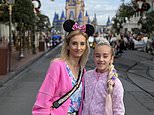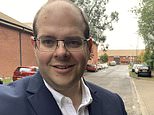

As Tesla CEO Elon Musk continues to make lofty promises about his company's future in autonomous driving and robotics, investors keep watching profit margins deteriorate.
In missing Wall Street estimates for second-quarter earnings on Tuesday, Tesla said its adjusted operating margin shrank to the lowest in three years, dropping to 14.4% from 18.7% a year earlier. It's the fourth straight quarter of shrinkage.
The company reported just $1.48 billion in net income on revenue of $25.5 billion, which included $890 million in regulatory credits.
Tesla is getting hit from both sides. Expenses are soaring as the company spends on the artificial intelligence infrastructure Musk says is needed to turn Tesla EVs into self-driving cars, and to develop humanoid robots capable of doing factory work and more.
Meanwhile, deliveries of Tesla's most popular electric vehicles have been dropping this year, and the company has responded by slashing prices and offering other incentives like low-interest loans.
"Affordability remains top of mind for customers," said Vaibhav Taneja, Tesla's chief accounting officer, on the company's earnings call. "And in response, in Q2, we offered attractive financing options to offset sustained high interest rates."
Tesla shares tumbled about 8% in extended trading on Tuesday to $227.23. They were down less than 1% for the year as of the close, while the Nasdaq was up 20% over that stretch.
Tesla said in its investor deck that the decline in operating income was due in part to the reduced average selling price and lower deliveries of its top EVs. Automotive revenue fell 7% from a year earlier, the second straight decline, as competition ramped up, most notably in China.
Tesla began offering a five-year, zero interest loan offer to spur sales of its EVs in China in April. The deal was supposed to last through the end of July, but the company extended the offer again on Tuesday, according to a report from CnEVPost, a Shanghai-based EV news site.
The company rolled out similar deals in Germany, home to Tesla's only European car factory. The offers included 0% financing over a four-year period for buyers of the new Model Y Long Range All-Wheel Drive purchased during the quarter.
In May, Tesla offered a 0.99% APR financing deal in the U.S. on some Model Y purchases, with terms lasting from three years to six years.
"We're now offering extremely competitive financing rates in most parts of the world," Taneja said. "This is the best time to buy a Tesla. I mean, if you're waiting on the sidelines, come out and get your car."
Guggenheim's Ronald Jewsikow, who recommends selling Tesla shares, published a note ahead of the earnings report on Tuesday, titled "Do Earnings Matter?" In it, he predicted the company's automotive gross margin would miss estimates, "driven by large discounting actions."
'Double down on Dojo'
While Tesla reckons with a much more competitive EV market than in the past, it's also trying to push into the future and catch up with companies like Alphabet's Waymo in the robotaxi market. In addition to hefty investments in autonomy, there's the Optimus humanoid robot project, which Musk has said will eventually turn Tesla into a company worth tens of trillions of dollars.
Those efforts require the construction of data centers filled with graphics processing units (GPUs) from Nvidia as well as development of Tesla's own homegrown AI processors. Tesla's operating expenses soared 39% from a year earlier in the second quarter to $2.97 billion. Capital expenditures on AI infrastructure in the quarter amounted to $600 million.
Musk said on the call that the company is going to "double down on Dojo," its supercomputer, "to be competitive with Nvidia."
Musk previously promised to build a $500 million Dojo supercomputer in Buffalo, New York. The company is now building out a wing of its factory in Austin, Texas, to accommodate a data center as well.
"I think we kind of have no choice because the demand for Nvidia is so high, and it's obviously their obligation essentially to raise the price of GPUs to whatever the market will bear, which is very high," Musk said. "So I think we've really got to make Dojo work, and we will."
For investors concerned about profit margins, that all may sound ominous. But Musk reiterated on Tuesday that shareholders focused on short-term results are in the wrong company. He described current issues as "noise."
Musk said Tesla will hold a robotaxi unveiling event on Oct. 10, two months later than originally planned. He said he'd be "shocked" if Tesla isn't offering autonomous rides by next year. Besides the "dedicated robotaxi," or CyberCab, Musk has been promising for years that Tesla will turn its customers' existing EVs into self-driving vehicles with software updates.
The updates would add features and improve the capabilities of its driver assistance software, marketed as Full Self-Driving Supervised today. Tesla also has a new AI5 hardware component it will need to add to its EVs to turn them into self-driving cars that don't require a human ready to steer or brake at all times.
"I've said this before in these calls — the value of Tesla overwhelmingly is autonomy," Musk said. "These other things are an annoyance relative to autonomy. So I recommend anyone who doesn't believe that Tesla will solve vehicle autonomy should not hold Tesla stock."
WATCH: Tesla has a lot to prove











